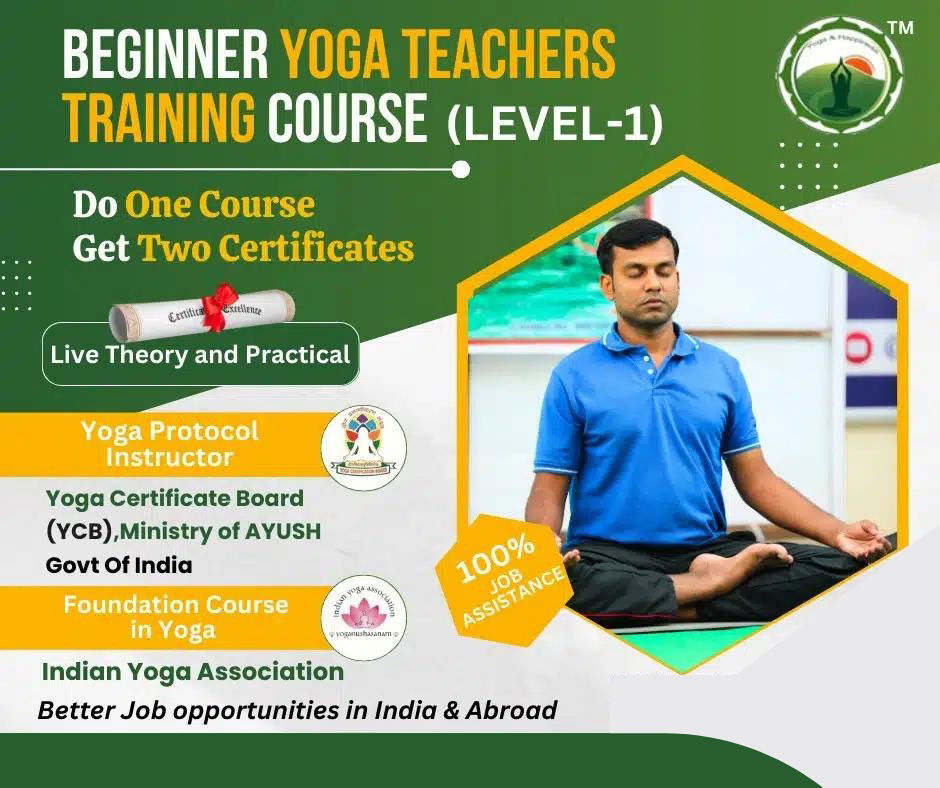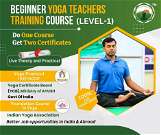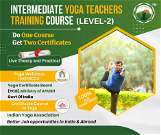Beginner Yoga Teachers Training Course
Beginner Yoga Certification Course contains bellow details- 1. Name of the certification: Level-1 Yoga Protocol Instructor + Foundation Course in Yoga (IYA) 2. Requirement/ Eligibility: a. For op...
- All levels
- English

Course Description
Beginner Yoga Certification Course contains bellow details- 1. Name of the certification: Level-1 Yoga Protocol Instructor + Foundation Course in Yoga (IYA) 2. Requirement/ Eligibility: a. For open candidates there is no eligibility criteria b. For admission in the course it is suggested/ desired that the candidate should have passed the 10th standard / secondary school certificate from a re...
Beginner Yoga Certification Course contains bellow details-
1. Name of the certification: Level-1 Yoga Protocol Instructor + Foundation Course in Yoga (IYA)
2. Requirement/ Eligibility:
a. For open candidates there is no eligibility criteria
b. For admission in the course it is suggested/ desired that the candidate should have passed the 10th standard / secondary school certificate from a recognized board or equivalent. However, Yoga Institutions can define their own eligibility
3. Brief Role Description: Certified Yoga Professionals (Yoga Protocol Instructor) can teach the basics of Yoga / common Yoga protocol developed by the Ministry of AYUSH for the International Day of Yoga for the prevention of diseases and promotion of health. They can conduct Yoga practice /classes in parks, societies, RWA, etc.
4. Minimum age: No age limit
5. Personal Attributes: The job requires an individual to have good communication skills, time management skills, and the ability to understand the body language of the trainees. The job requires an individual to possess key qualities such as self-discipline, confidence, maturity, patience, compassion, active listening, time management, empathy, and language proficiency.
6. Credit points for certificate: 12 credits
7. Duration of course: Not less than 200 hours or not less than 3 months as part-time or not less than 1 month as a full-time course.
8. Mark Distribution:
Total Marks: 200 (Theory: 60 + Practical: 140)
Level 1 Yoga Protocol Instructor (YCB) + Foundation Course in Yoga (IYA) + Volunteer ID Card by IYA
The duration of the course is One Month
The theory Session will be 8 PM to 9 PM (Monday to Friday)
Practical Sessions will be 7 AM to 8 AM & 6:30 PM to 7:30 PM (Monday to Friday)
Our New Batch starts Friday in every week
All the sessions will be LIVE on Zoom App and you will get all sessions recorded. No Expire of Session recordings.
Medium of Language: English / Hindi (All study material will be in the English Language)
See more See lessWhat you’ll learn
- Introduction to Yoga and Yogic Practices
- Introduction to Yoga Texts
- 1.1 Yoga : Etymology, definitions, aim, objectives and misconceptions. 1.2 Yoga : Its origin, history and development. 1.3 Guiding principles to be followed by Yoga practitioners. 1.4 Principles of Yoga (Triguna, Antahkarana-chatustaya, Tri-Sharira/ Panchakosha). 1.5 Introduction to major schools of Yoga (Jnana, Bhakti, Karma, Patanjali, Hatha). 1.6 Introduction to Yoga practices for health and well being. 1.7 Introduction to Shatkarma: meaning, purpose and their significance in Yoga Sadhana. 1.8 Introduction to Yogic Sukshma Vyayama, Sthula Vyayama and Surya Namaskara. 1.9 Introduction to Yogasana: meaning, principles, and their health benefits. 1.10 Introduction to Pranayama and Dhyana and their health benefits.
Covering Topics | Program Insights
1. Introduction to Yoga and Yogic Practices, 2. Introduction to Yoga Texts, 3.Yoga for Health Promotion, 4 Practical- A. Demonstration Skills & B. Teaching Skills (Methods of Teaching Yoga)
Curriculum
Frequently Asked Questions
This course includes
- Lectures 60
- Month 1 Month
- Language English
- Certificate Yes


